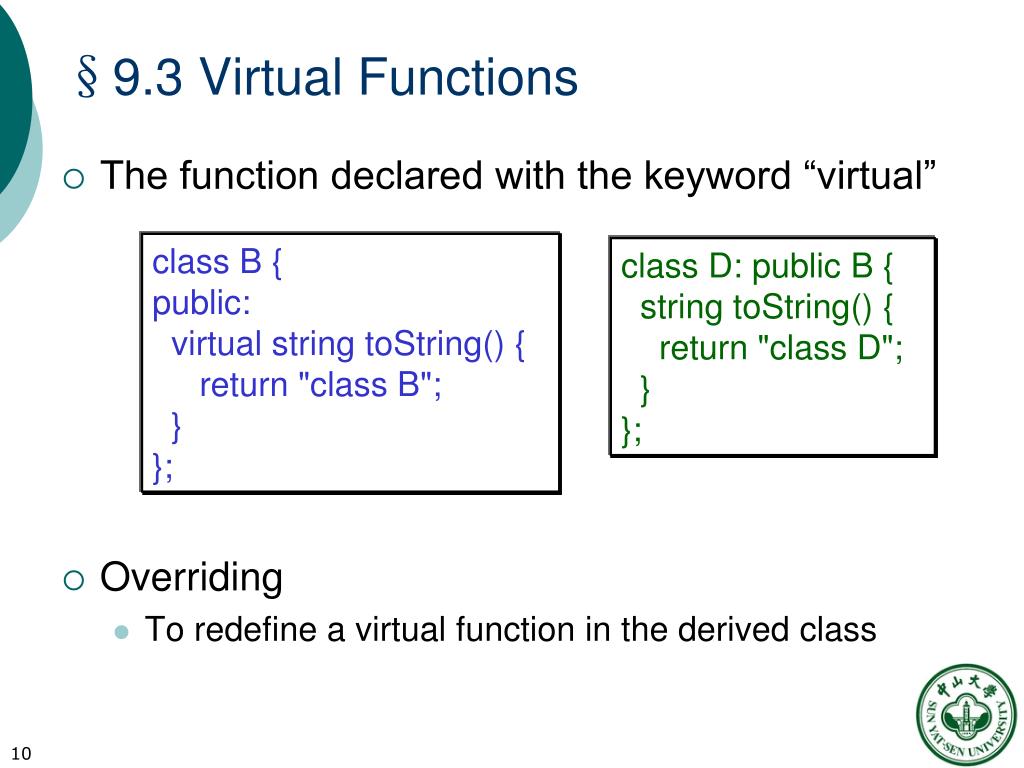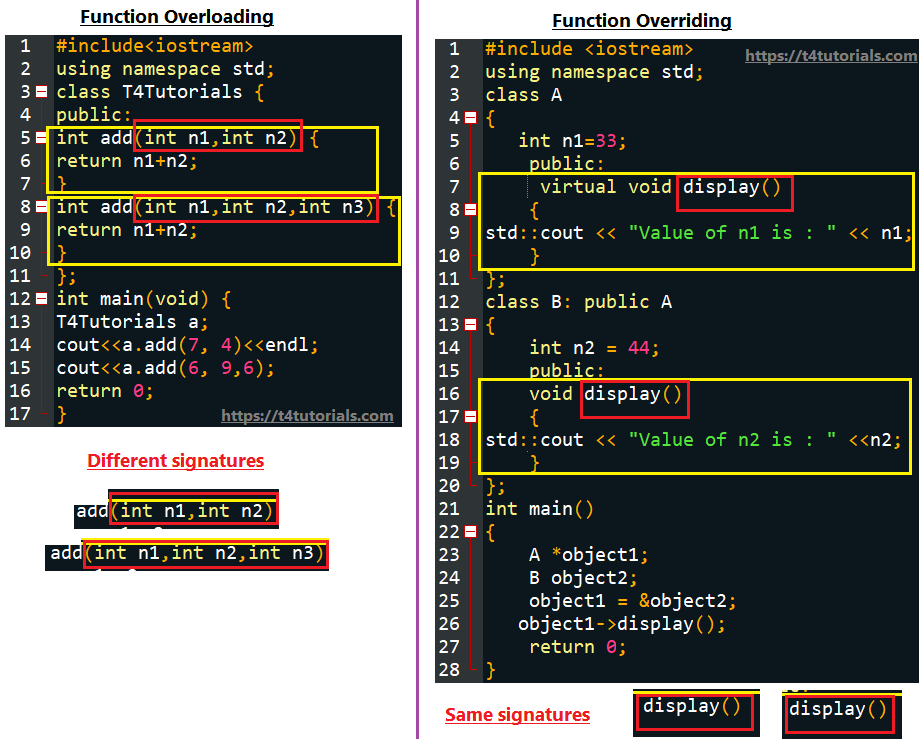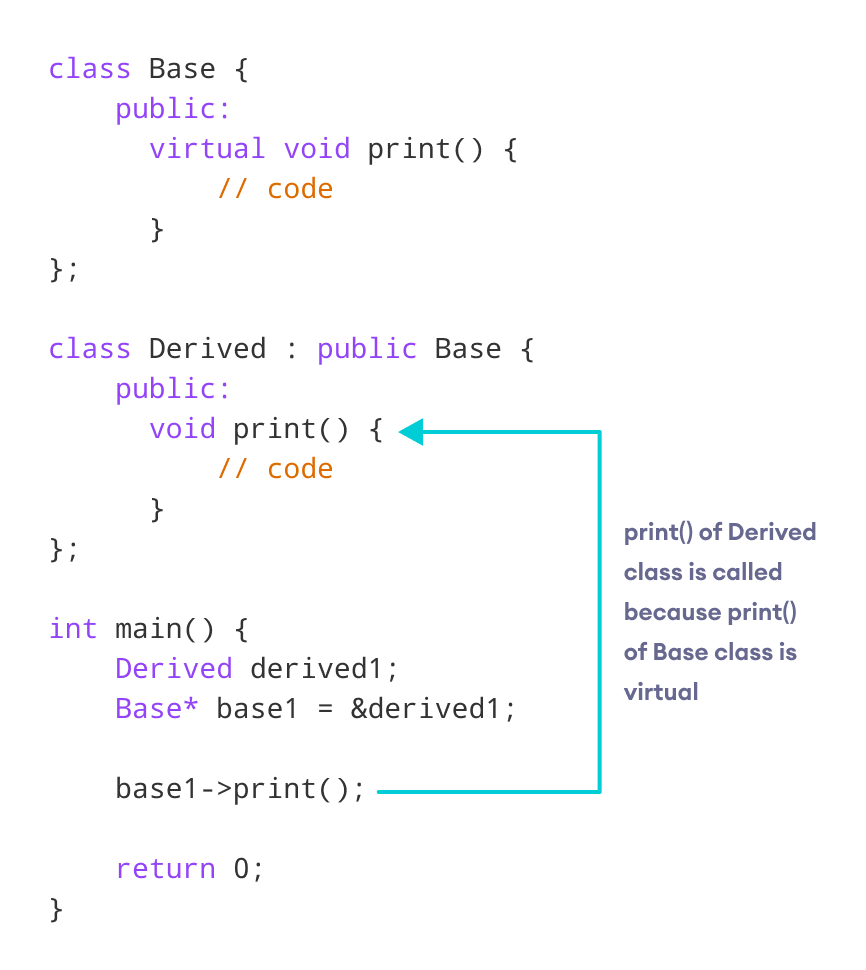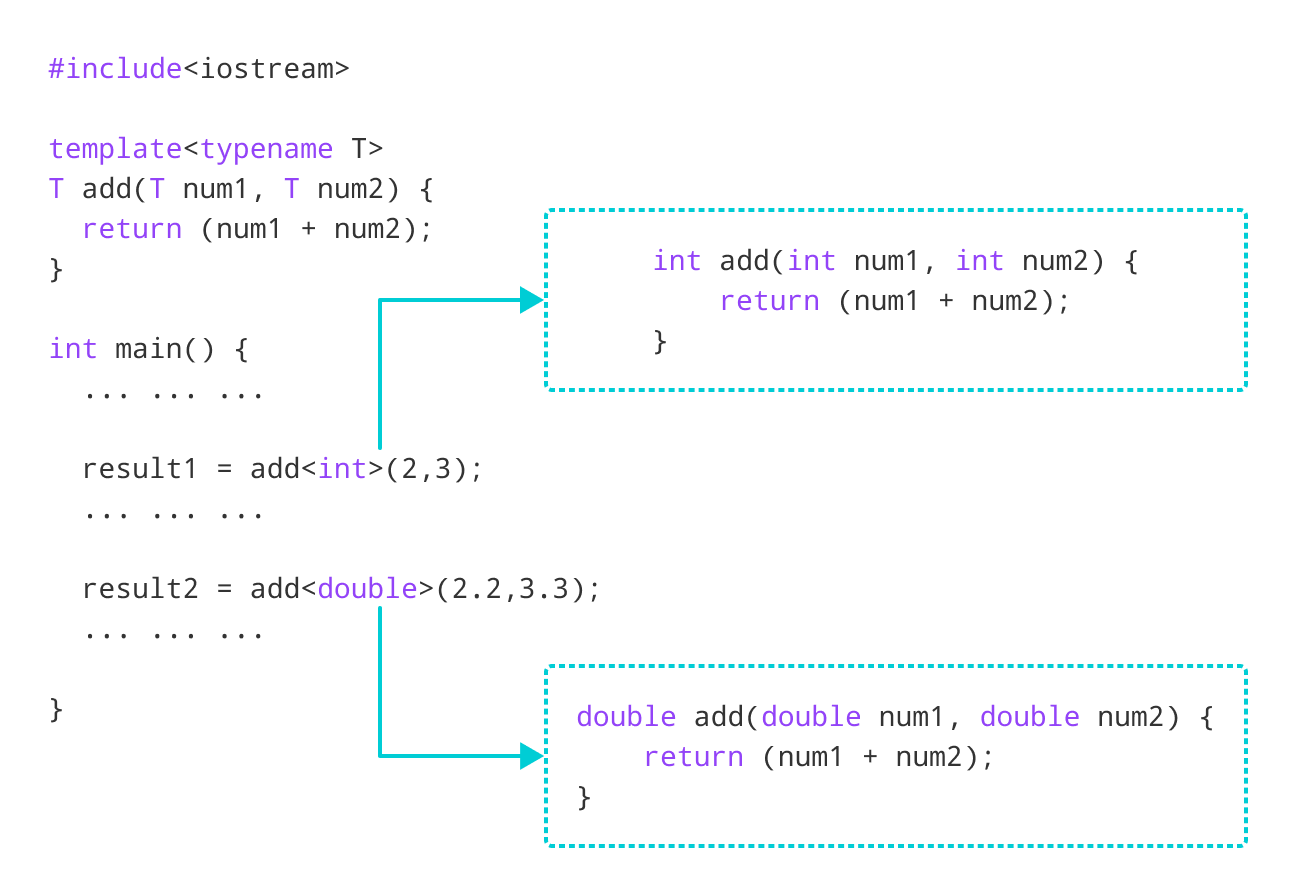Two), the following fix is possible: Web templated virtual member functions are not supported in c++ but i have a scenario where it would be ideal. Web template virtual functions are not allowed in c++, no matter what. Because you can't mix virtual. Web specializations of different function templates are always distinct from each other even if they have the same type.
The following would be nice, but is not. I'm afraid this argument might cause overhead. Web this document describes a way to replace virtual methods with templates to be able to maintain an high abstraction without paying the hidden cost of virtual methods. Web an abstract class is a class that either defines or inherits at least one function for which the final overrider is pure virtual. Im wondering if someone has ideas for ways to.
Web c++, unlike c#, can't do it using normal tools like virtual methods, function templates, abstract classes, interfaces and inheritance. Web first, you cannot have virtual template functions. Im wondering if someone has ideas for ways to. Template virtual void runtemplate() { /* do something. By the end of this post i'll show you that.
Im wondering if someone has ideas for ways to. The following would be nice, but is not. Because the template realization has very small cardinality (i.e. Because you can't mix virtual. Web templated virtual member functions are not supported in c++ but i have a scenario where it would be ideal. Two), the following fix is possible: Web specializations of different function templates are always distinct from each other even if they have the same type. Web a member function template cannot be virtual, and a member function template in a derived class cannot override a virtual member function from the base class. Web an abstract class is a class that either defines or inherits at least one function for which the final overrider is pure virtual. Web in this post we're going to focus on achieving virtual function templates within the scope of a single source file. Template virtual void runtemplate() { /* do something. By the end of this post i’ll show you that. You have probably heard about polymorphism before. Web first, you cannot have virtual template functions. Web template virtual functions are not allowed in c++, no matter what.
Because You Can't Mix Virtual.
Web an abstract class is a class that either defines or inherits at least one function for which the final overrider is pure virtual. I'm afraid this argument might cause overhead. By the end of this post i’ll show you that. The following would be nice, but is not.
Web The Workaround Uses A 'Dead' Argument, Just To Make A Different Signature.
Web c++, unlike c#, can't do it using normal tools like virtual methods, function templates, abstract classes, interfaces and inheritance. Web you will never be able to call fun() as a virtual method. You have probably heard about polymorphism before. Well, there are at least two different kinds of polymorphism in.
You Cannot Have Virtual Template Functions (Which Is Essentially What You Have Since It Takes A.
Two), the following fix is possible: Web in this post we’re going to focus on achieving virtual function templates within the scope of a single source file. Because the template realization has very small cardinality (i.e. Web specializations of different function templates are always distinct from each other even if they have the same type.
Web Template Virtual Functions Are Not Allowed In C++, No Matter What.
Two function templates with the same return. Template virtual void runtemplate() { /* do something. As templates are resolved at compile time, virtual will not work, as the compiler would not know which template to. Im wondering if someone has ideas for ways to.







